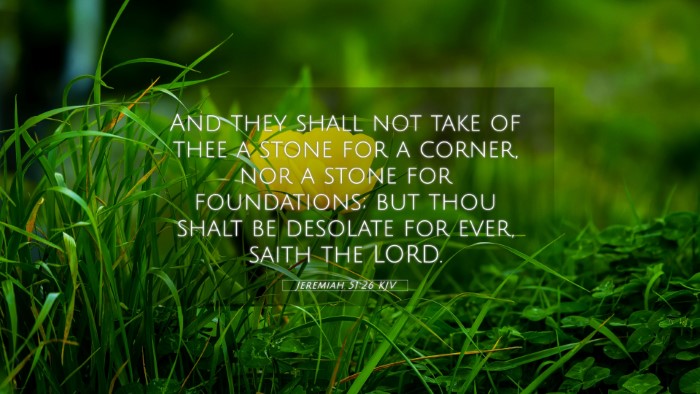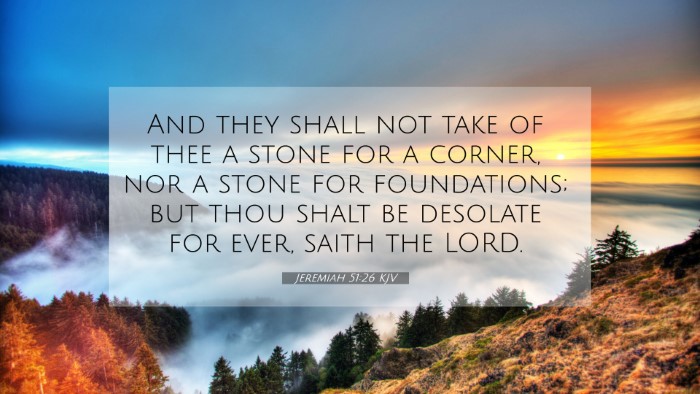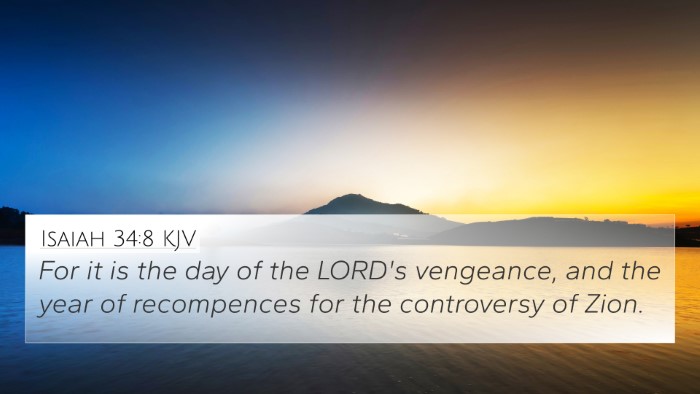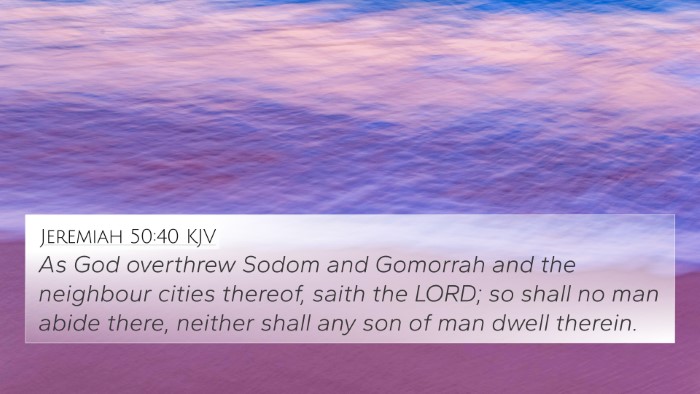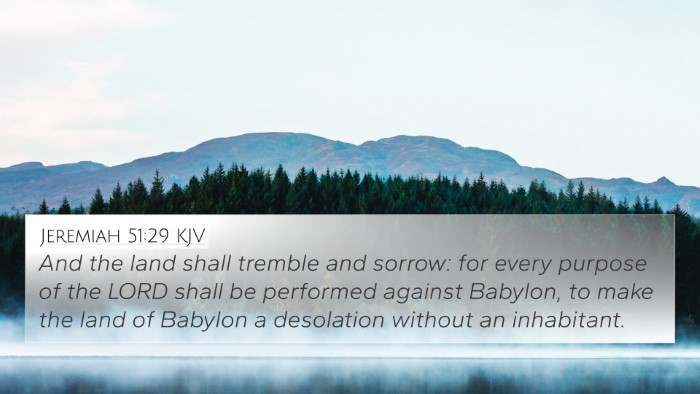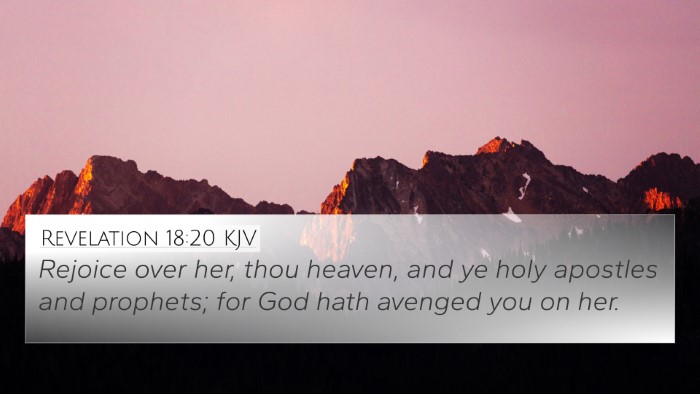Understanding Jeremiah 51:26
Jeremiah 51:26 states, "And they shall not take of thee a stone for a corner, nor a stone for foundations; but thou shalt be desolate for ever, saith the Lord." This verse serves as a stark declaration of the total destruction and utter desolation that Babylon will undergo as a punishment for its sins against God and His people.
Context and Themes
This verse is found within a broader prophecy regarding the fall of Babylon, a powerful empire known for its idolatry, pride, and oppression of God's people. Its impending downfall is a key theme in the Book of Jeremiah, highlighting God's judgment and the restoration of His people.
Key Insights from Commentaries
This section consolidates insights from well-known public domain commentaries:
- Matthew Henry: Henry emphasizes that Babylon, once a place of great power and grandeur, will lose its significance completely. The absence of stones for a foundation symbolizes that it will not only be destroyed but that nothing will be left to rebuild upon. It's a vivid representation of God's judgment on sin.
- Albert Barnes: Barnes notes that the verse signifies the divine decree against Babylon, indicating that it will be rendered completely useless and devoid of glory. He points out that the language used suggests a permanent state of desolation, illustrating the severity of God’s judgment and a warning against pride and wickedness.
- Adam Clarke: Clarke presents the idea that Babylon, once a hub of civilization, will be stripped of its importance. He discusses the significance of the cornerstones and foundations, revealing that these elements are critical for any structure, and by saying none will be taken, God underscores the total nature of Babylon’s destruction.
Bible Verse Cross-References
Jeremiah 51:26 has thematic and direct connections with several other scriptures that deepen the understanding of God's judgment, the concept of desolation, and the eventual restoration of His people. Here are some notable cross-references:
- Isaiah 13:19-22: This passage describes the destruction of Babylon and serves as a prophetic parallel to Jeremiah's message.
- Revelation 18:21: The fall of Babylon the Great is echoed here, emphasizing the finality of God's judgment on sin and wickedness.
- Jeremiah 50:13: Discusses the same theme of desolation laid upon Babylon, reiterating the consequences of its sins.
- Micah 3:12: Like Jeremiah, Micah proclaims that Zion will be plowed as a field due to the people’s iniquities, linking the concept of destruction to divine judgment.
- Ezekiel 26:14: Offers insights into the destiny of cities that oppose God, showing how they will be made desolate as a warning.
- Psalms 137:8-9: Reflects on the sorrow of the Israelites over Babylon’s destruction, highlighting the emotional impact of God's judgment.
- Matthew 24:2: Jesus' prophecy about the destruction of Jerusalem parallels the theme of desolation found in Jeremiah, emphasizing that such judgment is universal regardless of the kingdom.
Conclusion
When studying Jeremiah 51:26, it becomes evident that the message is not just about the fall of Babylon but serves as a profound reminder of God's holiness and sovereign judgment. The corresponding Scriptures provide a richer understanding of the themes of destruction and hope, encouraging believers to recognize the importance of alignment with God's principles. Utilizing tools for Bible cross-referencing and engaging in cross-reference Bible studies enriches one’s theological understanding and reveals the interconnectedness of scripture.
Tools for Bible Cross-Referencing
For those interested in deepening their study of the Word, consider the following resources:
- Bible concordance
- Bible cross-reference guide
- Cross-reference Bible study techniques
- Bible reference resources and database tools
Exploring Bible Verse Connections
By identifying connections between verses, we can enhance our comprehension of Biblical themes, such as:
- How the prophecies in the Old Testament relate to the teachings of the New Testament.
- Links between the prophetic utterances and the fulfillment in the life of Jesus.
- Cross-referencing the Psalms with New Testament themes to draw parallels in worship and theology.

